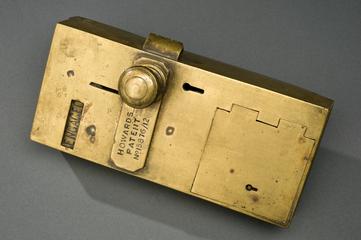
Urban Village Medical Practice’s COVID-19 vaccination programme portraits
- Made:
- 2022
Portrait of Tracy Rhodes, Homeless Lead Officer, and Martin Schofield, Team Leader, outside where the allotment of Woodward Court was located. Woodward Court is run by Manchester City Council and provides temporary accommodation for people who are homeless in Manchester. Photograph taken 28 April 2022.
These digital, photographic portraits of workers who vaccinated people who were homeless during the COVID-19 pandemic commemorate a Manchester story of healthcare innovation. Each participant was also interviewed for an oral history.
Inequality in Britain has made it almost impossible for the most vulnerable in our society to get COVID-19 vaccines. General Practices and vaccination centres have been the official places to go to get vaccinated, but this route does not work for people who are homeless.
The burden of fighting this healthcare inequality has fallen on healthcare workers in local communities. Urban Village Medical Practice, based in Ancoats, had a permanent programme of healthcare for people who are homeless prior to the COVID-19 pandemic. During the pandemic, they led Manchester’s vaccination programme of people who are homeless. Recognising that the nationwide vaccination routes would not work for their patients, the Urban Village healthcare team went out to vaccinate people in temporary accommodation, day centres, and using a clinical van when there was no suitable space indoors.
Manchester City Council supported this project, but vaccination schemes catered to people who are homeless are scarce on the national level. Guidance from the Ministry of Housing, Communities & Local Government states that “Everyone in England is entitled to register with a G.P[...] Practices should not turn people away because they do not have proof of ID, address, or immigration status.” Homelessness and COVID-19 Vaccination (February 2021).
However, a study published by the Bureau of Investigative Journalism (15/07/2021) found that patients across England and Wales had a two in three chance of being turned away outright when attempting to register at a GP without ID or proof of address.
Details
- Category:
- Public Health & Hygiene
- Object Number:
- 2024-330
- Materials:
- digital
- type:
- digital imaging and photography




